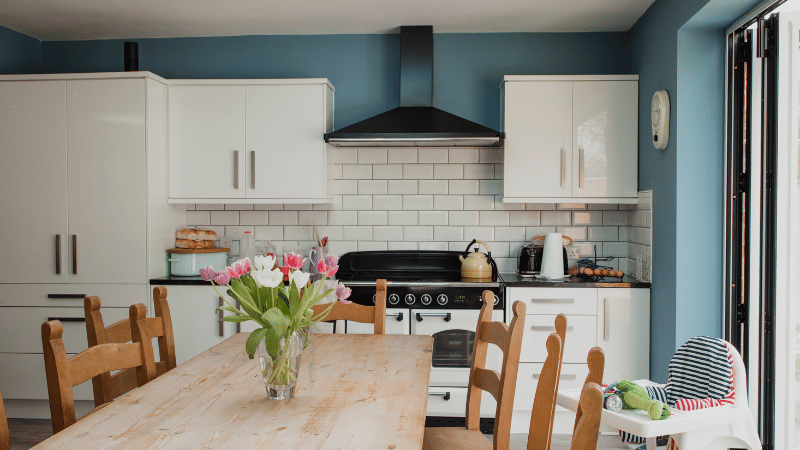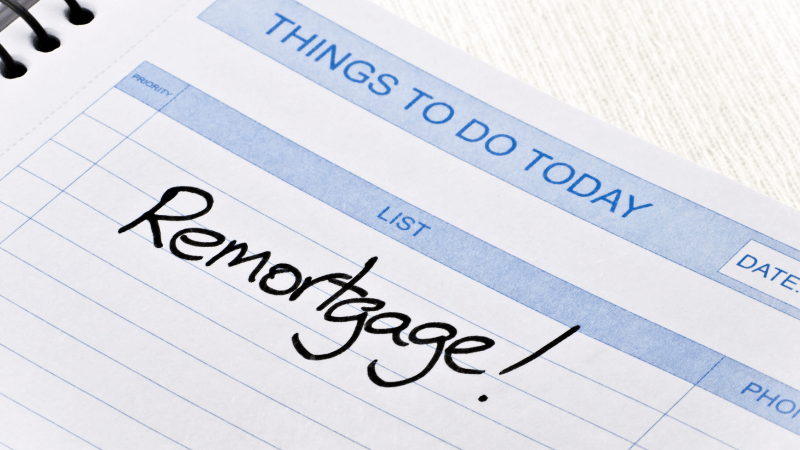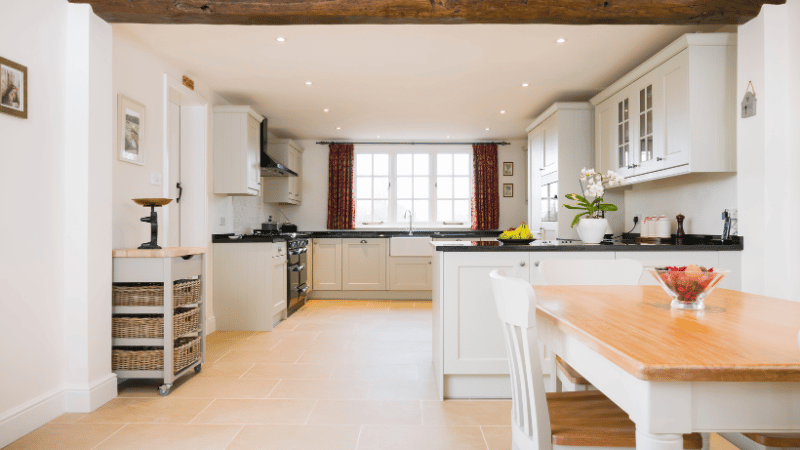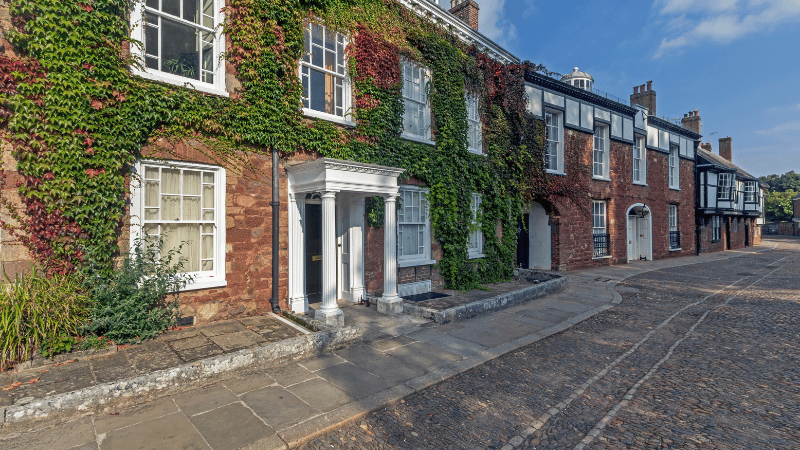Categories
Borrowing Extra on Mortgage for Renovations | 9 Things to Know

Mortgages are most often thought of as loans used to buy your house, but they also have another key function - providing the funds needed to keep your house in prime condition.
Building renovations and repairs can be expensive, so leveraging the capital you have invested in your home is an excellent way of covering the cost.
But how does borrowing extra on a mortgage to afford renovations work, and how much can you unlock? Our mortgage experts at Clifton Private Finance have the answers for you.
Get a Free Quote
Why Borrow Extra on your Mortgage for Renovations?
Finding the money for renovations can be difficult. Many home improvements can cost tens of thousands of pounds and, even if you have savings to cover the cost, the loss of security that can come from draining your resources can be worrying.
For the majority of homeowners, remortgaging is the most cost-effective way to fund renovations. These include:
- Renovation for home improvement - Getting an extension for a larger kitchen, or loft conversion for a home office, for example.
- Raising your property value - Extra bedrooms or bathrooms and a more spacious modern home will increase your property value when you do sell on, often boosting your home’s valuation for more than the cost of the renovations.
- Alterations for accessibility - As you approach retirement and old age, you may want to consider changes to the structure and layout of your home to improve comfort and accessibility. This may include doorway and corridor widening to accommodate wheelchair access, or converting bathrooms to level floor showers and wet rooms.
- Energy efficiency and environmental responsibility - Improving your insulation and modernising heating can add value and comfort as well as lowering the ongoing cost of bills - you might even become eligible for a green mortgage.
How Does Remortgaging for Renovations Work?
Mortgages are designed to be refinanced and renegotiated throughout their lifetime. With such a long term to completion, it is understood that the loan is reviewed every few years so the structure to do so is well-established.
When you look to borrow extra on your mortgage to fund your renovations, it helps to understand the following 9 key considerations:
You’re not tied to your current mortgage lender
Though there may be a reason to do so, such as early repayment charges, you are under no direct obligation to keep with your existing lender when you remortgage.
We will help you by listening to your exact needs, finding a mortgage lender who meets those requirements, and working with you throughout to make the remortgage process as smooth as possible.
Your potential renovation fund is tied to your total property value and equity
The maximum amount you will be able to raise with a remortgage will typically be equal to 90% loan-to-value (LTV) on your property - this includes repaying the current mortgage balance and providing funds for your renovation.
Consider the following examples:
- Simon and Harriet have a house valued at £420,000. A 90% LTV loan on a house of that value is £378,000. Their current mortgage balance is £296,000 and this must be paid off as part of the remortgage, leaving a maximum cash total of £82,000 (£378,000 - £296,000) for them to use in renovations.
- Finn owns a flat valued at £190,000. His potential total remortgage is £171,000. With a current mortgage total of £110,000, he could stretch to £61,000 for renovations.
It is important to bear in mind that fees may also need to be paid, lowering the realistic size of your renovations pot.
You will need to pass credit history and affordability checks
Many people think that just because they have equity in their home, a remortgage is a sure thing. However, just like any other loan, the lender will need to check that you can afford the repayments - this means a check on your credit report as well as a thorough affordability check.
The mortgage affordability check measures your income and outgoings to make sure you can make the monthly payment on the mortgage and includes a ‘stress test’ that evaluates that you could continue to comfortably meet the obligation even if interest rates change.

Your new mortgage will have a different rate
When you remortgage, you effectively cancel your old mortgage deal and replace it with a brand-new one.
This means that any mortgage rate that you had will no longer be relevant, and your remortgage will have a new rate. There are multiple factors that will make your replacement mortgage rate either better or worse than your current rate:
- The general economy and Bank of England base rate for interest
- Difference in your credit rating from your original mortgage application
- Difference in your affordability check considering potentially larger size of mortgage repayment
- The equity you have built up in your home, changes to its market value, and the LTV of your remortgage
- The length of the remortgage term
- The proposed plans for the use of the money, specifically the nature of your renovations and if any additional money is to be used for other purposes
You may be able to use the money for more than just renovations
Depending on the lender and specifics of the mortgage contract, you may look for a remortgage that is somewhat flexible regarding the use of the funds released.
If you are looking to do more with the money beyond renovations, let us know early on and we can make sure the flexibility to do so is part of your chosen mortgage product.
There is a small risk of negative equity
Negative equity occurs when the size of your mortgage is greater than the value of your home. In this situation, you owe more to the mortgage company than you could raise by selling your home, often locking you in the property and meaning you cannot sell and move on.
Talking to an expert mortgage advisor at Clifton Private Finance will help you minimise this risk as we will go through the likely future valuations of your property and the impact of the remortgage with you. Negative equity is rare, and with a mortgage specialist at your side, it’s made even rarer.
You may have to pay Early Repayment Charges (ERCs) to your current lender
If you are currently on a fixed rate with your existing mortgage lender, it is likely that you will have to pay ERCs as part of the remortgage process.
You can increase the length of your mortgage
A remortgage doesn’t have to match the length of your original mortgage, though many people do choose to keep it the same. As it is a brand-new mortgage contract, you may want to extend the term to lower your monthly repayments and lessen the immediate financial impact of the renovations.
Speaking to an advisor is essential to understand your options regarding mortgage length and how it may affect you later in life.
You can remortgage again in a few years
As mentioned earlier, mortgages should be reviewed regularly to make sure you have the right rate and flexibility you need - and your remortgage is no different in this regard.
Recent Mortgage Case Studies
Read some of our recent client stories detailing how we can help in complex and unorthodox mortgage scenarios:
4 Other Funding Options for Renovations
While remortgaging has many benefits, including its lower rates and flexibility, it is not the only option available for financing home renovations. You may like to consider:
A Second Charge Loan / Homeowners Secured Loan
A second charge mortgage, also known as a homeowners loan, or homeowners secured loan, is a loan that uses your home equity as collateral in a similar way to your mortgage, but sits alongside your existing mortgage rather than replacing it as a remortgage.
At first glance, it can seem very similar to a remortgage, but it differs in some key ways:
- A second charge loan will have a different rate and length to your mortgage - Homeowners loans typically have shorter terms and higher interest rates to a remortgage, so they are paid off quicker and have larger monthly repayments.
- Affordability is assessed differently - A full affordability and stress test is rarely part of a second charge loan assessment, so they can be easier to obtain than a remortgage for some people.
- Credit checks are more flexible - Though a poor credit rating will lead to far higher interest rates, many second-charge loan lenders specialise in working with homeowners with bad credit, offering an option for those who would fail a mortgage application.
Like a mortgage, however, a homeowners secured loan uses your property as security for the loan, meaning your home may be repossessed if you fail to keep up with repayments.
Speak to a Clifton Private Finance advisor to learn more about the pros and cons of a second charge loan and to see if it is a suitable option for you.
You can read more about homeowners loans in our knowledge base.
An Unsecured Personal Loan
An unsecured loan is an option for applicants with strong credit ratings and good financial history. With personal loans up to £25,000 available from multiple lenders, they provide a basic structure to pay for home renovations without the direct risk of repossession.
Unsecured loans, however, will rarely be able to offer the low interest rates that can be obtained through a remortgage, making them a more expensive option in almost every situation.

Credit Cards
Like an unsecured loan, credit cards offer a way to pay for house renovations without leveraging your home as security. If you have the disposable income to pay back the cost of your renovations quickly, using credit cards can be a viable way of getting the funds quickly and effectively.
Grants
In some circumstances, such as if you are adapting your home for accessibility reasons, or installing new heating options to make your home more ecologically sound, there may be grants available to help you with the cost.
Researching both regional and national grants could save you thousands on the overall cost of your renovations.
Borrowing Extra on Your Mortgage with Clifton Private Finance
At Clifton Private Finance, our mortgage team work tirelessly every day to keep up with the ever-changing mortgage landscape in the UK.
Don’t hold back from your home renovations - speak to a Clifton Private Finance mortgage advisor today and unlock the equity in your property to revitalise it and make it the true home of your dreams.























